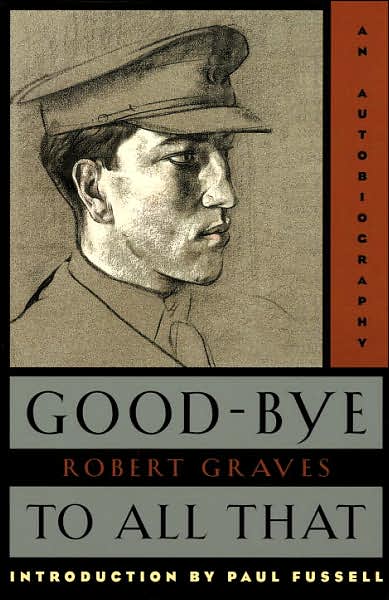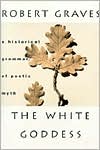Summary | Excerpt | Reading Guide | Reviews | Beyond the Book | Read-Alikes | Genres & Themes | Author Bio

A Novel
by Paul MurrayThis article relates to Skippy Dies
What is Robert Graves doing, you might ask, in a book about rowdy teen boys? His presence is pervasive from the very first chapter, when the mysterious and beautiful new geography teacher, Aurelie, talks to Howard the Coward about how to get his history students engaged with the First World War:
"You should read them Robert Graves," she says.
"Who?"
"He was in the trenches," she replies; then adds, after a pause, "He was also one of the great love poets."
 Robert Graves (1895-1985), author of many works including I, Claudius, is perhaps most famous for his memoir, Goodbye to All That, first published in 1929 when he was 34. The memoir lays out the early traumas of life at Charterhouse, a venerable public school for boys in the South of England. Upon graduation, Graves muses with a friend about what it would take to undo the crushing "tradition" that animates the school and oppresses the boys.
Robert Graves (1895-1985), author of many works including I, Claudius, is perhaps most famous for his memoir, Goodbye to All That, first published in 1929 when he was 34. The memoir lays out the early traumas of life at Charterhouse, a venerable public school for boys in the South of England. Upon graduation, Graves muses with a friend about what it would take to undo the crushing "tradition" that animates the school and oppresses the boys.
Starting over with new staff and students "would not be enough, the school buildings being so impregnated with what passed as the public school spirit, but what we felt as fundamental evil, that they would have to be demolished and the school rebuilt elsewhere under a different name." Bullying, hazing, an anti-intellectual ethos, a cult of sportsmanship, an elaborate hierarchy, intense homosocial courting, and even masters who kiss and fondle the boys – all this must be endured. Paul Murray's Seabrook College picks up Graves' Charterhouse themes and places them in an Irish Catholic context, with TV and IM-ing added to the mix.
 Adulthood quickly eclipses school-age trauma in Goodbye to All That. After briefly taking up his place at Oxford University, Graves enlisted in August 1914 at the outbreak of World War I - the horrors he witnessed make it amazing that he can remember school at all. One in three of the boys he knew during his Charterhouse days never returned from the war.
Adulthood quickly eclipses school-age trauma in Goodbye to All That. After briefly taking up his place at Oxford University, Graves enlisted in August 1914 at the outbreak of World War I - the horrors he witnessed make it amazing that he can remember school at all. One in three of the boys he knew during his Charterhouse days never returned from the war.
 Graves' mytho-poetic work, The White Goddess, also comes up multiple times in Skippy Dies. In The White Goddess, Graves lays out a mythical geneology wherein the "true poet" takes his spiritual calling from an ages-old goddess figure – a muse or Great Mother. Graves follows in the footsteps of early twentieth century scholars like Jane Ellen Harrison, who sought to uncover the feminine nature of the chthonic religions (i.e. religions pertaining to the earth) underlying better-known classical mythology. "A true poem," Graves asserts, "is necessarily an invocation of the White Goddess, or Muse, the Mother of All Living, the ancient power of fright and lust - the female spider or the queen-bee whose embrace is death."
Graves' mytho-poetic work, The White Goddess, also comes up multiple times in Skippy Dies. In The White Goddess, Graves lays out a mythical geneology wherein the "true poet" takes his spiritual calling from an ages-old goddess figure – a muse or Great Mother. Graves follows in the footsteps of early twentieth century scholars like Jane Ellen Harrison, who sought to uncover the feminine nature of the chthonic religions (i.e. religions pertaining to the earth) underlying better-known classical mythology. "A true poem," Graves asserts, "is necessarily an invocation of the White Goddess, or Muse, the Mother of All Living, the ancient power of fright and lust - the female spider or the queen-bee whose embrace is death."
There is a Celtic element in Skippy Dies - many of Graves' mythic sources are taken from Welsh and Irish poetry, the same stories of earth goddesses that give the Dublin boys in Skippy Dies goosebumps generations later. Indeed, Graves' cosmology seems to fit the Seabrook boys naturally. The novel's female characters appear through a mystical haze fitting for a modern White Goddess. When Howard meets Aurelie for the first time, she "draws the eye like a flame. Her blonde hair has that cascading quality you normally see only in TV ads for shampoo... her voice, while soft and melodious, has at the same time an ungainsayable quality, an undertone of command. In the crook of her arm she cradles a globe, which while she speaks she caresses absently as if it were a fat, spoiled housecat; it almost seems to purr as it revolves languorously under her fingertips." The beautiful women, desirable girls, and even inaccessible mothers in Skippy Dies are the book's White Goddesses - distant, inspiring and, ultimately, unknowable.
Filed under Books and Authors
![]() This "beyond the book article" relates to Skippy Dies. It originally ran in September 2010 and has been updated for the
August 2011 paperback edition.
Go to magazine.
This "beyond the book article" relates to Skippy Dies. It originally ran in September 2010 and has been updated for the
August 2011 paperback edition.
Go to magazine.
When men are not regretting that life is so short, they are doing something to kill time.
Click Here to find out who said this, as well as discovering other famous literary quotes!
Your guide toexceptional books
BookBrowse seeks out and recommends the best in contemporary fiction and nonfiction—books that not only engage and entertain but also deepen our understanding of ourselves and the world around us.